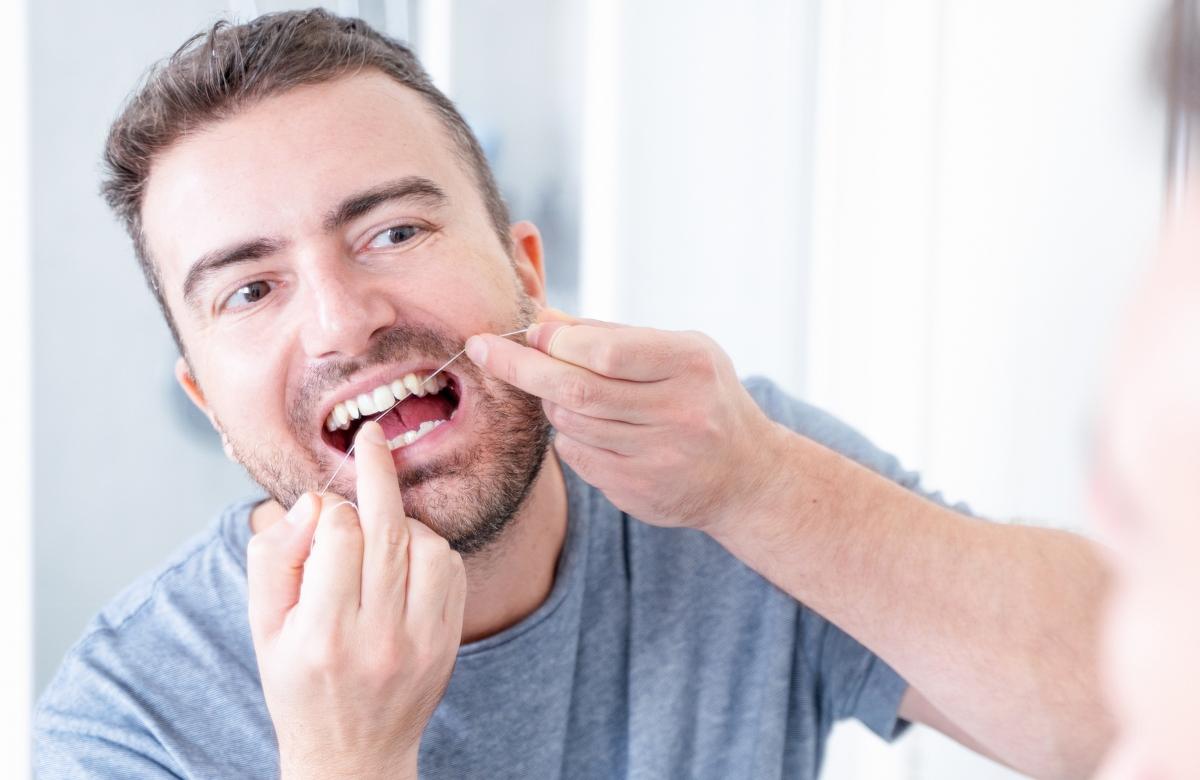Periodontal Disease: A Dentist on How to Keep Your Teeth After a Diagnosis (Exclusive)
Published June 1 2023, 12:53 p.m. ET

Alex Rodriguez takes part in a panel during WSJ’s The Future of Everything Festival on May 8, 2018 in New York City.
Although we may not give as much attention to oral health as other aspects of physical health, taking care of your teeth through brushing and flossing properly is essential. Ignoring oral hygiene can lead to the development of periodontal disease, which can lead to major dental problems.
How long can you keep your teeth with periodontal disease? And is it actually possible to prevent this disease through vigilant toothbrushing and oral care?
To learn more about periodontal disease — as inspired by MLB player Alex Rodriguez's diagnosis — Green Matters spoke with Dr. Rhonda Kalasho, a Doctor of Dentistry and the CEO of TruGlo Modern Dental.

What is periodontal disease?
As Dr. Kalasho explains to Green Matters, "periodontal disease is a chronic inflammatory condition that affects the gums, ligaments, and bone surrounding the teeth." When left untreated, periodontal disease can lead to tooth loss, she notes.
The Centers for Disease Control and Prevention explains that periodontal diseases result from infections and inflammation of the gums and the bones around your teeth. Gingivitis, a term most of us have heard of, is an early stage of periodontal disease that involves swelling and redness in the gums as well as possible bleeding of the gums.
These are the warning signs and causes of periodontal disease.
To be on the lookout for periodontal disease, you can learn the warning signs. The CDC lists the following: bad breath or a persistent bad taste, red/swollen gums, tender or bleeding gums, and pain when chewing are a few. You may also experience sensitive or loose teeth, notice that the gums are pulling away from teeth.
Changes in the fit of teeth when biting or changes in the fit of partial dentures can also indicate periodontal disease.
The National Institute of Dental and Craniofacial Research (NIDCR) states that poor brushing and flossing habits are generally the cause of periodontal disease. Not following proper oral care recommendations can lead to plaque, a sticky bacteria film, covering the teeth.
Other risk factors of periodontal disease, per the CDC and NIDCR, include:
- smoking
- hormonal changes in girls and women due to oral contraceptives or pregnancy
- genetics
- illnesses including diabetes or AIDS (and related medications)
- stress
- crooked teeth
- defective fillings.
Alex Rodriguez, former Major League Baseball player for the Yankees, brought gum disease into the public eye by announcing his diagnosis in May 2023, as CBS News reported. He urged people to see their dentist and follow dental care guidance.

Will you lose your teeth if you have periodontal disease?
One of the first concerns of someone who is diagnosed with periodontal disease is whether or not they will lose their teeth.
“The duration someone can keep their teeth with periodontal disease varies and depends on several factors," Dentist Dr. Rhonda Kalasho tells Green Matters in an email. "While it is challenging to provide an exact timeframe, proactive oral care and regular dental visits can significantly impact the longevity of one's teeth despite this condition.”
The NIDCR also says that the worst-case scenario is having teeth become loose or require removal. Even if it doesn't come to that, leaving periodontal disease untreated can make it spread to the bones around the gums. Chewing food becomes painful in that case.
According to Bristle Health, not everyone with periodontal disease loses their teeth. One 2003 study showed 61 out of 156 patients with periodontal disease did not lose any teeth over a 12-year span. It's difficult to say how long typical patients keep their teeth, as it depends on their oral care after diagnosis, among other risk factors, but you don't have to lose your teeth if you have this disease!
How can you treat periodontal disease?
"It is advised to not keep periodontal disease untreated for too long, as gum disease builds on its severity over time," says Dr. Kalasho.
Dr. Kalasho says that conditions like diabetes, cardiovascular diseases, and immune disorders can impact the body's ability to fight infections, which include periodontal disease. "Managing these conditions and maintaining overall health can play a role in tooth retention," she explains.
Dr. Kalasho notes that even after a periodontal disease diagnosis, it's vital to keep up your oral care at home, and to regularly visit the dentist for checkups and cleanings. She also recommends using a toothpaste that contains fluoride, and has antibacterial and tartar control properties.
According to the CDC, in certain cases, patients may need treatment through deep cleaning of the roots below the gums, medications, or corrective surgery.
